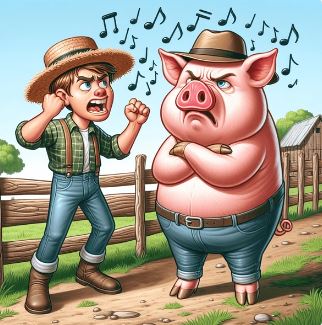一八五 明心见性

大师同时强调知识及智慧二者。
他曾如此答复:「知识是来自读书或聆听演说。」
「智慧呢?」
「是来自阅读你自己这本书。」
他又加上一句妙言:「这可不是一件容易的工作呵!因为这本书每分钟都在增订当中。」
ENLIGHTENMENT
The Master was an advocate both of learning and of Wisdom.
“Learning.” he said when asked, “is got by reading books or listening to lectures.”
“And Wisdom?”
“By reading the book that is you.”
He added as an afterthought: “Not an easy task at all, for every minute of the day
brings a new edition of the book!”









